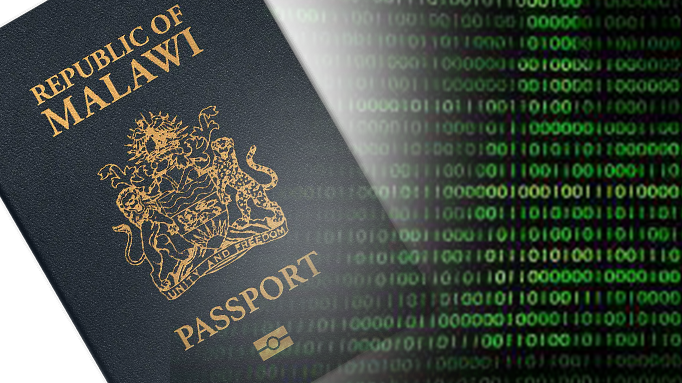A recent malicious cyberattack on Malawi’s passport system presented a severe issue and highlighted the risks that nations face in an increasingly digital environment.
Concerns regarding data security and the effect on residents’ ability to travel were raised by the hack, which “hijacked” the passport system. But since then, the nation has proven resilient and responsive in its efforts to recover from this cyber-attack.
“I want law enforcement agencies to immediately establish an investigation into the attack of the e-passport issuance system at the Department of Immigration and Citizenship Services,” said President Lazarus Chakwera. The law should punish those found guilty.”
Cyberattack: National Security Risk
According to the president, the system was hacked by unknown ‘mercenaries’ who wanted a ransom, constituting a ‘major violation in Malawi’s national security’.
Read also: Starlink Internet services now available In Malawi
Hackers gained control of the passport production system. The Malawi passport system cyberattack threatens national security and vital services. Using system weaknesses, attackers halted passport issuance and compromised citizen data. It alarmed the administration and residents who needed these travel and ID credentials.
Because of impending holidays and international events, there was a spike in demand for passports at the time of the attack, which made matters worse. This left many citizens stranded without the necessary travel documents, affecting personal plans and economic activities dependent on cross-border movement.
Rebuilding Cyberdefenses
The cyber-attack caused uproar, but Malawi quickly responded with a multi-pronged approach to recovery and cyber defences. To prevent data breaches and further damage, the infected system was shut down immediately.
The cyberattack’s origin and extent were investigated using forensics. Investigators learned the attackers’ methods and developed ways to prevent future attacks. Additionally, experts assessed and strengthened the passport system’s security backbone, adding modern encryption and authentication.
Malawi quickly restored its passport system thanks to government institutions, cybersecurity professionals, and foreign partners. This included safe data recovery and new, more secure passports for impacted persons.
The Department of Immigration and Citizenship Services director general, Charles Kalumo, announced the restoration in a statement recently.
The development means that the department’s e-passport Issuance service has resumed, and passport printing will begin gradually in Lilongwe this week, followed by the rest of the regions.
“The Department of Immigration and Citizenship Services would like to thank all concerned Malawians for their patience during the time the e-passport issuance system was being fixed by a team of local experts from various entities who worked around the clock to complete the task within the time frame set by the president,”
Flutterwave obtains international money transfer license in Malawi.
Lessons Learned
The Malawi passport system cyberattack was a wake-up call for digital cybersecurity. As countries embrace digital change, particularly in Africa, they face vulnerabilities.
Malawi will keep up with technological advancements, cybersecurity training, and partnerships. System audits, employee awareness workshops, and global cybersecurity cooperation are included.
After this cyberattack, Malawi expects to strengthen. A linked society requires proactive cybersecurity to secure national assets, citizen data, and critical services.














